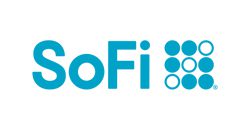Thanks to excessively high APRs or extra-short repayment terms, we recommend skipping many of the short-term loans below. Still, knowing what’s out there could help you avoid the cycle of debt.
Paycheck advance
Some employers may let you take a paycheck advance, which is like getting paid before you’ve completed the work. With this type of loan, you’ll be borrowing a portion of your next paycheck. This can be handy in the present moment, but not so much for your future self.
Employers are not allowed to make a profit through paycheck advances, but they can charge a fee or interest to pay for the extra accounting needed to provide this short-term loan.
Not all employers allow paycheck advances, but there are mobile paycheck advance apps that can help you borrow funds sans credit check. When you get your next paycheck, the amount you borrowed will be deducted from your account, usually with no fees or interest.
Paycheck advance apps usually only lend a couple of hundred of dollars at a time, at least to start. Take the mobile app EarnIn. When you first sign up, you can only borrow up to $100. But over time, you may be able to increase your paycheck advance amount, up to $750.
Credit card cash advance
You can borrow against your current credit card and get a cash loan by taking a cash advance. Since you’ve already been approved for the card, you don’t have to go through another credit check to get this short-term loan.
You may be able to withdraw funds from an ATM using your credit card that allows credit advances or through a convenience check sent by the credit card company. How much you can access generally depends on your credit limit, but some lenders may have a separate cash advance credit limit.
Beware: Using your credit card to get access to cash can be expensive. You’ll probably have to pay extra fees, but companies might charge a higher interest rate, too. That interest also begins to accrue immediately, leading you to owe more than you borrowed by your first billing cycle.
Pawnshop loan
If you have a valuable item — such as jewelry or a musical instrument — that you’re willing to risk, you could get a pawnshop loan. With this short-term loan, you’ll use your valuable item as collateral. If you can’t hold up your end of the loan, the pawnshop gets your item (for good).
To make a profit, pawnshops usually offer loans for 25% to 60% of your item’s worth. Since the pawnshop undervalues your collateral, you might be forced to put up something very valuable to get the loan amount you need.
According to the National Pawnbrokers Association, the average pawnshop loan is $180, and the shop will usually require you to pay back your loan within 30 days. Most pawnshops don’t charge interest, but don’t think you’ll get away scot-free. Instead of interest, they’ll charge fees. Many times, these fees reach predatory levels.
On the plus side, you don’t need to pass a credit check to get a pawnshop loan. Also, defaulting or making late payments won’t impact your credit score.
Car title loan
Car title loans are another type of short-term loan that requires collateral. This time, you’ll use your car title, motorcycle title or truck title rather than a valuable personal item. Like pawnshops, car title loan lenders undervalue your collateral, typically to the tune of 25% to 50%.
Since the lender knows it can recoup some of its losses through repossession, it doesn’t check your credit or have stringent requirements. On the other hand, you may lose your vehicle if you don’t make payments. Title loans also come with fees that may equate to 300% APR, and you’ll probably only have 30 days or less to pay back what you borrowed.
Payday loan
Payday loans are similar to paycheck advances, but they’re offered by lenders rather than your employer or an app. These short-term loans have lax requirements. You usually only need to provide proof of income and have a bank account — no credit check is required.
While these loans are easy to get, payday loans come with colossal interest rates, like 400% APR. Payday loans typically come with a fee between $10 and $30 for every $100 borrowed, but this depends on state laws. You might also face fees for accessing your loan through a prepaid debit card, if that’s how you opt for payment.
Even though you’ll pay dearly for a payday loan, you’ll only get a small amount of money in return. While this varies by state, $500 is a common loan size. You’ll also need to repay your loan (plus interest) in one lump sum, usually through your next paycheck.






